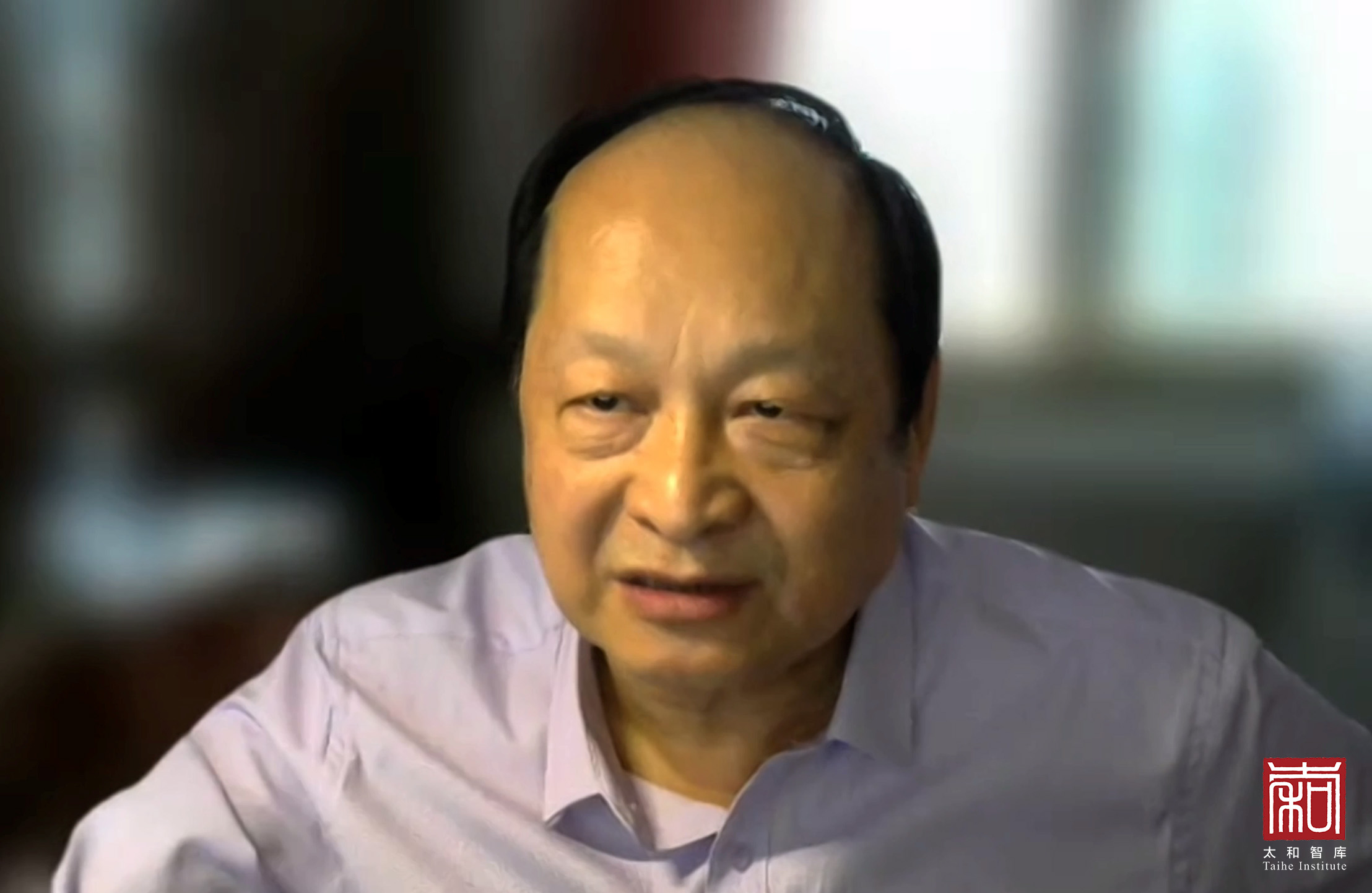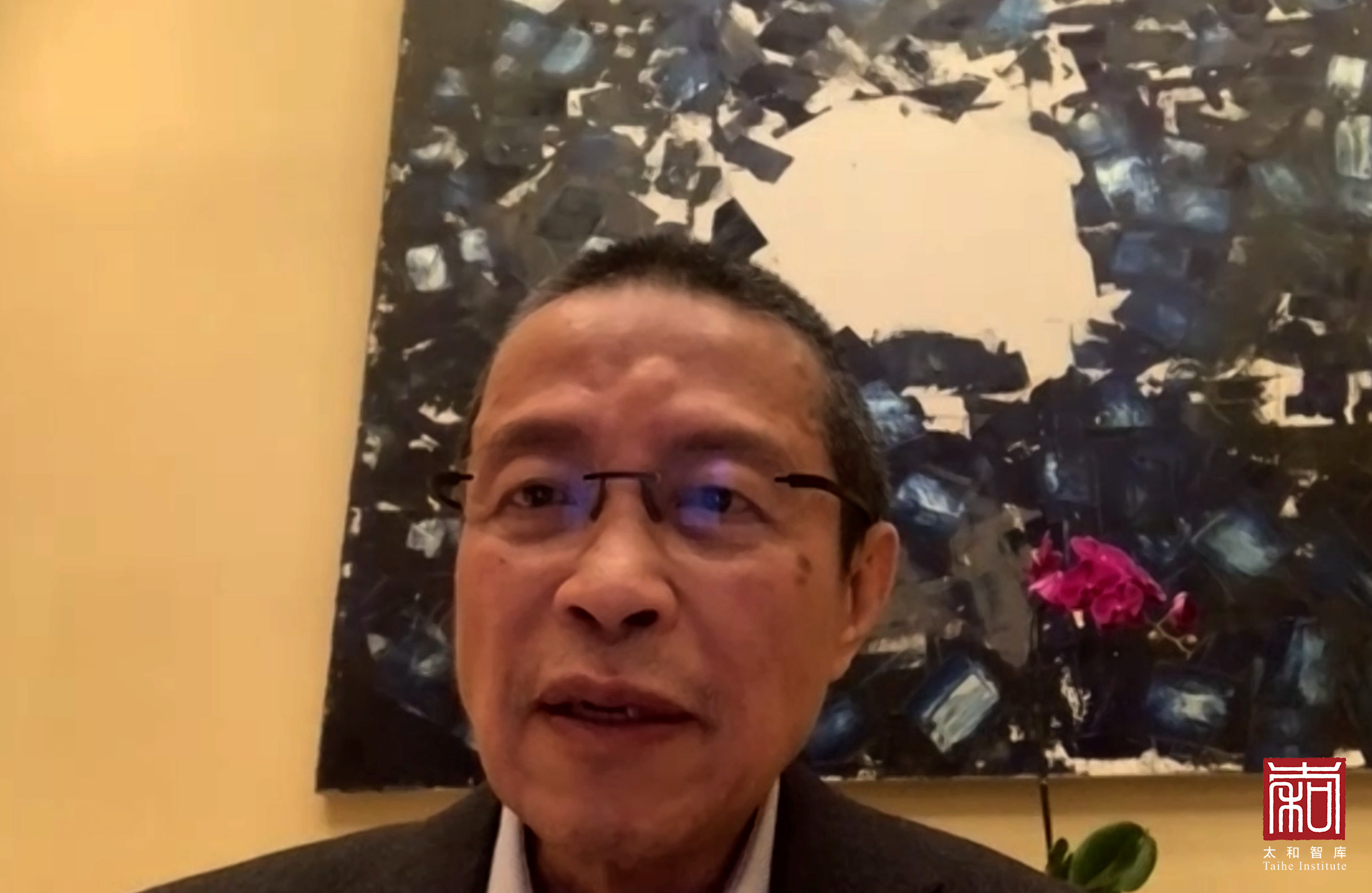On November 23, 2022, Ding Yifan and Charles Liu Yangsheng, senior fellows of Taihe Institute (TI), were invited by the Prospective and Innovation Foundation to speak at its webinar on the theme of “EU-China Relations: A New Start After the 20th CPC Congress?” Ding and Charles took part in the panel discussions on the results of the 20th CPC National Congress, developments in China-EU relations and China-U.S. relations, etc. The key takeaways from Ding and Charles’ remarks are summarized below.

Ding Yifan pointed out that the 20th CPC National Congress showcases the continuity of China’s development policies, signals that China will continue to expand the opening-up, and it also indicates four trends for China’s future development. First, China will accelerate the construction of the new development paradigm with domestic circulation as the mainstay, international circulation improved, and each reinforcing the other, and China will step up the building of a unified national market. Second, China will expand its middle-income group by expanding the domestic consumption market and improving people’s spending power. Third, China will strengthen efforts to realize rural revitalization and is poised to basically attain agricultural and rural modernization by 2035. And fourth, China will advance cooperation with the international community in terms of science and technology.
In addition, Ding noted that before the outbreak of the COVID-19 pandemic, Europe had left a positive impression on China and was most appreciated by the Chinese public. After the pandemic breakout, China and Europe cooperated closely on medical supplies and anti-pandemic research. However, since the eruption of the Russia-Ukraine conflict, Europe has constantly, and wrongly, accused China of siding with Russia, which has offended the Chinese people. Ding also argued that Europe is the second biggest victim of the conflict besides Ukraine, and that it is in the best interests of all stakeholders to call for an immediate ceasefire between Russia and Ukraine. Ding pointed out that stable trilateral relations among China, the EU and the U.S. are beneficial to all. However, the U.S. seems determined to curb China through various coalitions. The EU, as a result, has been asked to side with the U.S., which is detrimental to the development of both China and the EU.

Charles Liu Yangsheng stated that the Global South is on the rise and its participation in international affairs is increasing. Therefore, the interests of Global South countries should also be taken into account for continued global development. For example, the ASEAN countries have recently hosted a series of vital international conferences and attracted increasing attention. The extensive cooperation between China and ASEAN countries sets an example. In the future, the importance of South-South cooperation will only continue to grow.
Charles also pointed out that, after the 20th CPC National Congress, Western media has criticized China for turning “left” based on two observations: first, China’s stronger regulation over private capital in China; and second, China’s effort to expand the middle-income group. However, these two moves are aimed at achieving common prosperity. The private sector is still of vital importance in China and holds dominate positions in various fields. China’s actions and policies are not anti-market, but aim to provide better market regulation and supervision to prevent potential monopoly formation and other market problems.
Charles noted that, in recent years, many politicians in Europe took a stand against China, and the EU also followed the U.S. by imposing multiple rounds of sanctions on China, which in fact swings the EU away from its doctrine of “strategic autonomy.” In the face of US pressure, the Global South did not take sides, but the EU did. The EU should carefully consider the consequences of giving up the large markets of Asia for the sake of US interests. Charles also stated that the EU should unequivocally adhere to its policy of strategic autonomy, since China and EU have great opportunities to cooperate on new energy, climate change and other urgent global issues.
——————————————